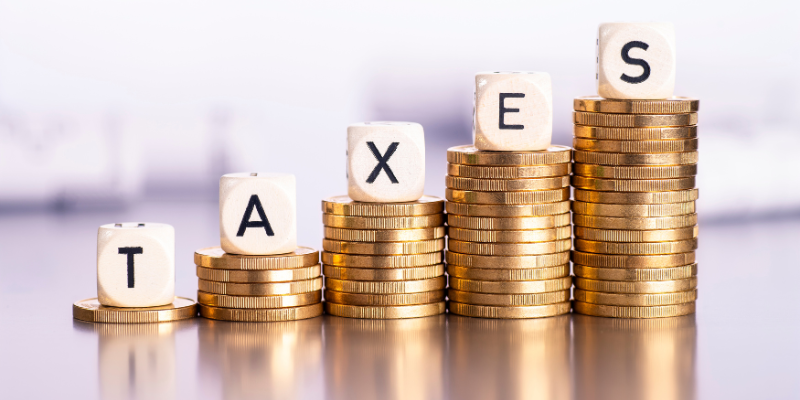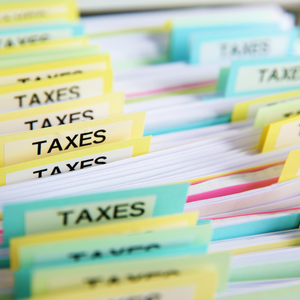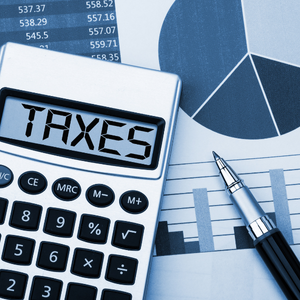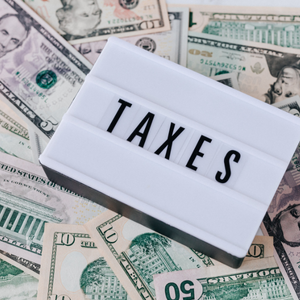
Understanding Property Taxes: A Comprehensive Guide
When selling a home in Baltimore, Maryland, a fundamental aspect of it is understanding property taxes, which are assessed by local authorities, and your obligations monetarily during the selling process.
The tax rate in Baltimore is set against the assessed value of a property which is, more often than not, different than its true market value. Prior to selling a home, it is essential to determine property taxes that need to be paid off, as they need the paid off during the closing.
This gives a glimpse of the selling aspect of the home. It is also important to know how prorated taxes work and how they are estimated. Pending property taxes that need to be settled by the seller need to be correctly stated, as it the custom of closing papers.
Also, it is important to be aware of tax exemptions and tax credits to correctly figure out the tax owed, which a Baltimore real estate agent or tax specialist will be able to help with the many regulations in Baltimore.
This understanding not only helps in estimating the net proceeds, but also gets you ready for any unexpected property tax expenses you might be liable for during the selling of the home a process CR of Maryland I LLC can help simplify.
Key Factors Influencing Property Tax Rates
While deliberating on the sale of real estate, including a house in foreclosure, it is important to comprehend the rest of the important tax areas on the selling of the domicile, especially on property tax consideration protocols in Baltimore, Maryland. Baltimore’s property tax is assessed on every property. Each property’s assessed value is estimated by government assessors periodically over a determined duration.
All government assessors estimate the value of a property depending on the economic state of the property and the real estate market, and the rest of its conditions. Each neighborhood’s data, the improvements of the property infrastructure, and the rest of its area’s infrastructure are some informational conditions that revolve around property value and neighborhood value.
Homeowners over the age of sixty-five, and some veterans, are provided with property tax exemption and relief programs which assist in the financial load of property tax. change on the government’s policies on either state or city instituted tax relief, or, it’s collection mechanism, can easily change Baltimore’s property tax phenomena.
The real estate market is vital for people to understand the mechanisms of the rest of the elements, for it is easier to predict the financial tax of the property, before selling in this city.
How to Calculate Your Property Taxes Accurately

All phone sellers in Baltimore need to understand the selling price impact for accurate property tax assessments. Start with finding the property tax assessments for the property in question.
These figures are provided by the Maryland Department of Assessments and Taxation and are based on market realities. After this, Baltimore city tax rates and relevant county surcharges should be assessed, as these can affect the final computation greatly.
Baltimore property taxes also come with additional obligations, such as school district taxes and special taxes on the general fund for the same. Homestead credits and other special tax credits can be relevant. So can special assessments for school infrastructure.
As tax code changes almost on a daily basis, only a calculator or prorater who understands selling taxes for a blend of online and offline resources can provide accurate computations. Proactive estimations on these primary expenses can avoid the closing delay, or you can choose to sell your home for cash in Baltimore or nearby cities for a faster, hassle-free solution.
Strategies for Reducing Your Property Tax Burden
Strategies to reduce the property tax burden while selling a house in Baltimore, Maryland, can affect the financial outcome in a meaningful way. One of the ways to do this is to claim the Maryland Homestead Tax Credit, which limits how much the property can be assessed for in taxable value every year.
This credit can ensure property taxes do not spiral out of control for the property owner, especially for properties in areas experiencing dramatic increases in value. Also, you might qualify for the Homeowners’ Property Tax Credit Program, which is designed to provide property tax relief, though constrained by income means, for homeowners who meet certain qualifications.
Also, hearing the “capital improvements” assertion and the value deductions to the selling price to determine the capital gains tax, by itself, demonstrates the need to organize the renovations to what is claimed to the taxing authorities. Improved structures dated by receipts organized and supported by photographs can ensure the tax outcome on the proceeds of the sale reaches a desirable amount and legal outcome.
Further, the value you obtain from speaking to a tax specialist that knows the particular state laws of Maryland is knowledge as to how to best customize your situation to the state of Maryland and the particulars that line up to your life.
Common Property Tax Exemptions and How to Qualify
The impact of selling a house in Baltimore MD on your bottom-line extends beyond the asking price. Home owners may be eligible for the Homestead Tax Credit which reduces a primary Home owner’s taxable yearly assessment increases and thus, the total taxes paid.
The owner-occupant must also file the application with the Maryland Department of Assessments and Taxation. People with disabilities, property tax credits, and jurisdiction age restrictions may also be able to take advantage of a lower property tax if the citizen is over a specified age and below a certain income threshold.
Veterans and the surviving spouses of veterans who have been completely disabled as a result of War may also be eligible for significant property tax breaks. These potential tax saving features have certain restrictions and conditions which, if satisfied, may relieve a taxpayer of the property tax burden.
Knowing how to gather the relevant documents and file them with the required local and state bodies to be eligible for such benefits is essential. You may uncover substantial savings in otherwise intricate and complex real estate transactions.
Navigating Property Tax Appeals: a Step-by-step Process
Using a strategic approach is the best way to successfully navigate property tax appeals in Baltimore, MD. This approach is needed so that homeowners are able to contest their tax assessments on property. This begins with a thorough review of the property assessment notice, specifically identifying discrepancies or cases of overvaluation.
It is in the best interest of homeowners to collect documents that reflect sale prices of comparable properties in their respective neighborhoods. This is crucial in order to substantiate a claim for a lower assessment. Each of the bordering counties maintains its own appeal procedures and deadlines, so understanding these procedures and deadlines is crucial.
When filing an appeal, it is essential that a strong and compelling case is presented. Having a working knowledge of the laws pertaining to Baltimore’s property taxes is invaluable. Evidence clearly located and organized can also alter the appeal’s outcome of interest as well, and having such evidence readily accessible or stored with a lawyer greatly accentuates this appreciation.
Following the aforementioned steps increases the chance of success and significantly reduces the property tax appeal burden that is normally incurred. The appeal will be greatly appreciated and valued in the city of Baltimore.
Comparing Property Tax Rates Across Different States
The Capital Gains Tax should not be a deterrent in the process of selling bodily holdings, nor should it be a charge that arrives as a surprise for the property owner.
In the process of selling the property, it is the owner of the holdings who bares the Capital Gains tax, which is set in place by the state, as the selling charge for the consequence of deriving the aforementioned amount.
Each holding is further categorized in terms of tax slabs, which is the base charge divided by the slab in which the holding is placed. The Capital Gains charges, like the rest of the ones set by the opinion of state lawmakers, emanate in slab formats akin to the Duct System of HVAC.
The property owner, used to the procedure of the military, regards expense charges in bolts of his currency. The look of his expense sheet is that of a ripened orange.
The owner perceives it as a bearable charge that, unlike the ones that tax his mental focus, does not echo as a shout in a graveyard. He is not the recruit of a greedy military, where even the strands of the rope are counted.
The charge is palpable to him, yet a breach of the self technique, where unreal economics of life wilderness converge.
Grasping these details aids sellers in predicting possible problems or advantages in taking any steps necessary to complete a move to another state after a sale is finalized.
The Impact of Local Government Policies on Property Taxes
Understanding the tax obligations related to the sale of your house in Baltimore, MD, requires understanding the complex dynamics of property taxes tied to the sale of the property, and Baltimore conveys a complex property tax system driven by numerous variables, such as the Maryland State Department of Assessments and Taxation (SDAT) Assessments, and other statutory and local legislation.
Homeowners must understand that city councils and other legislative bodies have the capacity to change market assessments in Baltimore. Also, tax credits and exemptions, such as the Baltimore Homestead Tax Credit, which ignores the taxable assessments of real estate located in Baltimore, may limit tax exposure on real estate gains, and should be analyzed by sellers.
Being politically active and keeping an ear to the ground on statutes that may change property taxes and local tax policy is crucial. They have a tremendous impact on the overall tax exposure a seller must grapple. Also, the tax in question is only payable upon streamlining the sale of the property. Knowing the value of the transfer taxes at the state and city level is important, as they needed to estimate selling costs.
To avoid nasty surprises that a seller may encounter, a good understanding is needed of capital gains during the sale of the property, while a qualified real estate agent or tax specialist may be able to help with the complex regulations unique to Baltimore.
Understanding the Relationship Between Home Value and Property Taxes
As with other jurisdictions across the nation, real estate owners in Baltimore, Maryland, need to keep in mind the linkage between the valuation of real estate and property taxes and the consequences it could have for taxes. Baltimore, Maryland, City, like the rest of the country, assesses real estate and calculates property tax based on the property’s assessed value.
The property tax amount as Maryland, Baltimore, City, property owners pay is assessed and computed based on the value of the property after evaluating the prevailing market conditions & trends, and nearby real estate and its selling prices. The value of a property increases leads to increase in taxes, and so becomes a huge financial burden during the process of property sale.
An increasing tax value means that selling a property becomes a tough job. Baltimore and Maryland citizens have to review the property assessments very often. The review of property assessments is vital. They calculate gains from selling of the property. The citizens of Maryland and Baltimore City have to work hard for these gains.
Knowing property value, real estate owners can value how estate assessment tax changes with market value estimate. They can calculate tax with the gains. The revised assessment is necessary. The people of Maryland and Baltimore have to keep up with changes in real estate and invest in it.
Exploring the Benefits and Drawbacks of High vs Low Property Tax Areas
Knowing the pros and cons of selling a home in Baltimore and Maryland is a must skill for any home owner. An owner of a property situated in a high tax region is bound to face some paying public centrally located to good public Facilities. Better schools and good public infrastructural and public infrastructure replenish and increases the value of the property over a period of time.
On the contrary, people who lack the financial means to pay such exorbitant prices will never become buyers. The other side of the property, buyers who purchase a property in a low tax region can advertise the property for tax buyers who purchase a property in low tax regions, and wish to market it for income, are devoid of any Facilities as opposed to those in high tax regions.
Such an imbalance is capable of not just influencing the interest of buyers, but the resale value and marketability of the product as well. Pricing is a very sensitive issue to a seller, but most homes are sold as per market needs, forgetting the user value and cost.
Knowing how to deal with property taxes in Baltimore is a very strategic and clever real estate decision.
Insights Into Baltimore, MD’s Real Estate Market and Tax Implications
Understanding the local tax rules will fully equip you with the knowledge needed to handle the sale of your home in Baltimore, MD. The home values in Baltimore fluctuate, which greatly affects the market, including capital gains tax when selling.
Since you owned and lived in the Baltimore home for at least two of the last five years, you might be able to take advantage of capital gains exclusions. The state of Maryland, however, has its own taxation rules that are obligatory for any seller to observe.
The seller is likely to lose a portion of the profit as a result of the city’s transfer and recordation taxes. These details are essential while formulating a strategy for selling your home in Baltimore.
Having worked with Maryland’s taxation regulations, a tax consultant is likely to be of great assistance in planning for tax obligations that may arise from the real estate deal.
Selling a Home in Baltimore, MD: Key Tax Considerations

Selling a home in Baltimore, MD, comes with understanding primary tax obligations to minimize unforeseen tax liabilities. One such liability that follows the capital gains tax warrants consideration for homeowners selling their property.
For capital gains tax purposes, the IRS grants a primary residence exclusion on capital gains taxes if some requirements are met. One such requirement is that you must have owned the property and occupied it as your primary and only residence for two years within the last five, counting backward from the date of sale.
Like the Federal Government, Maryland has its own statutes, and so the local sellers have to pay transfer taxes and recordation fees, which in turn impact the net proceeds from the sale of the home. Furthermore, if the property in question was ever used as rental or investment property, depreciation recapture is very likely to affect the taxable income.
Improvements to the home can be used as evidence to support the adjustment of home cost basis claims; therefore, it is prudent to keep these records, as well as any relevant data that has a chance of diminishing the extent of capital gains. Working with local tax experts is the best way to ascertain Maryland tax laws and their implications.
Capital Gains Tax Implications When Selling Residential Properties
Selling a residential property in Baltimore, Maryland, comes with an understood capital gains tax, which every homeowner should be familiar with. Home capital gains tax is a tax you pay on profit earned from a sale which in your case is a house, if you make over an ascertained amount by the IRS.
Baltimore residents who own homes may want to take advantage of the primary residence exclusion, which allows single filers to exclude gains of up to $250,000, while married couples filing jointly can exclude up to $500,000, so long as ownership and use tests are satisfied. These tests stipulate that you must have owned and resided in the house as the primary home for at least two out of the preceding five years in relation to the sale.
Nonetheless, capital gains are computed by finding your cost basis. This involves capturing the original purchase price, as well as, any considerable enhancements done throughout the years. Always keep written documentation of the enhancements done as these will certainly lower the amount of the taxable gain from the sale.
And, to add, aside from federal tax, selling a house in Maryland comes with state tax also. Seeking intermediaries like a tax consultant on real estate businesses will enable sellers to maneuver these sticky terrains by focusing on cutting expenses while optimizing profits.
Estate Planning: Managing Inheritance and Property Taxes Effectively
Closing the deal on a house in Baltimore, MD, and the resultant tax consequences require an acute understanding of estate planning, walking hand in hand with ignoring inheritance and property taxes. Ignoring crucial details can be detrimental and counterproductive to planning your finances.
In Baltimore, the homeowners planning to sell the house and move out are said to be on the receiving end of Baltimore and Maryland capital gains tax policies stemming from provision outlined at the federal level. Besides, the much sought after estate planning can be invaluable in deferring estate taxes using the transfer tax strategies like gifting or setting up a trust for the receiving parties.
The ownership and transfer of property must be properly organized in order to establish a lower limit on and reduce the anticipated inheritance tax obligations of the beneficiaries. Leaving these taxes to be paid by the successors means losing a large sum in estate taxes, and that can be avoided by paying attention to the various taxes and estate plan in order to settle them in favor of the heirs.
A Maryland specialized tax attorney or estate attorney should be hired to handle these matters for optimal outcomes.
How Recent Legislation Is Affecting State-wide Property Taxes
In Maryland, the recent policy change touches on the property tax issues raised by the State in the ongoing attempts to reduce housing and taxation challenges for the Baltimore area, particularly for the sellers of homes in the area. There are new proposals to revise certain housing policies and to improve the tax burden.
There are changes to how property and other associated taxes, along with modifications to the State’s fundamental exemption, the Homestead Tax Credit, which ensures citizens of the State do not suffer from exorbitant tax increases due to the escalation in the value of their homes. As sellers, it is important to appreciate the potential impact of changes in such policies on the tax yield from the sale of a home.
There are other new policies which change the derivative tax rates and may charge sellers with capital gains which others with the sale of home need to incorporate in their strategies. Sellers of homes in Baltimore need to comprehend the recent changes in the tax policies of the State to plan optimally the tax yield from the sale of their home. These changes can yield greater financial savings for the homeowner in the current climate.
Evaluating the Long-term Trends in National Property Tax Rates
Understanding the tax implications of selling a home in Baltimore, MD, entails considering national trends and how they might shape your bottom line. Over the years, property taxes have been considered a moving target, shaped by prevailing economic conditions, law changes, and local governmental policies.
These underlying trends are crucial in assessing the tax burden for homeowners in a given region. In recent years, a growing number of regions have come under a system of what can be termed an upward spiraling property tax. This has become a norm for tax-starved municipal authorities trying to balance government income and expenditures while providing adequate infrastructural and social services to the people.
In many of these cases, the blame can be apportioned to rising property values. The same has been said of homeowners in Baltimore regarding national trends and local taxes on real property and local real estate.
Going by these trends, one can forecast the level of tax to be paid and hence, plan in advance the selling price of the property.
Impact of Economic Conditions on Real Estate Prices and Associated Taxes
The real estate market and respective home sale tax in Baltimore MD are highly affected by the state of the economy. Home values during an economic expansion and the overall value of the home benefits the seller in the form of high capital gains.
The seller can incur heavy capital gains tax in appreciation if the holding has been for investment purposes, or if the seller crosses the IRS exclusion zone for primary residences. On the other hand, in the case of an economic depression where the value of the property is greatly decreased, the tax gain is reduced and can even become a tax loss.
The limitation of my above argument is that the loss for a personal residence is something that cannot be deducted. Buyer interest and demand and the overall condition of the economy is something that the seller should also keep in mind as it can significantly impact the sale price and tax liability.
Homeowners in Baltimore need to focus on both of these economic concepts, as the ability to optimize tax evasions while navigating through real estate transactions is highly selective.
What Taxes Do I Pay When I Sell My House in Maryland?
When it comes to the selling of a house in Baltimore, Maryland, the focus is primarily on the profit, which involves avoiding the capital gains tax on selling real estate, which is very important. The most effective technique is fulfilling the capital gain exclusions set out in section 121 of the IRS tax code. For instance, the real estate sale gains exclusion applies where the owner of the real estate sells it after having it as a primary residence for 2 out of the 5 years prior to the sale.
Along with the claim to primary residence capital gains exclusions, retained documentation proving the owner’s expenditures on capital improvements qualifying for the owner’s capital gains on the sale of real property lowers the net taxable gain. If working tacitly with a Baltimore realtor, how do you determine the value of the real estate market in Baltimore to set a sale appointment?
Moreover, consider any 1031 Exchanges, which will allow capital gains on the sale to be deferred, and any short-term reinvestments, which will assist in the reinvestment. Avoiding or minimizing capital gains tax on selling a house in Baltimore and selling a house across the rest of Maryland is quite manageable.
How to Avoid Capital Gains Tax When Selling a House in Maryland?
In Baltimore, Maryland, avoiding capital gains from selling real estate is a vital part of selling a house, mostly for the profit. One of the most efficient ways to do this is by claiming the capital gain exclusions defined in section 121 of the tax code under the IRS. As an example, excluding some of the gains from taxable income on the sale of real estate where a primary residence was maintained for 2 of the 5 years preceding the date of sale.
In addition, holding on to evidence of home improvements increases the owner’s basis of the home and, therefore, decreases the taxable gain. Consider talking with a local Baltimore realtor, assessing the state of the real estate market, and scheduling a time to sell.
Also, consider any 1031 exchanges that would allow for reinvestment in a short term and would help defer capital gains on the sale. In this way, selling a house in Baltimore, or anywhere in Maryland, capital gains will be able to be managed or even avoided entirely.
How to Avoid Current Capital Gains Tax on Real Estate?

Baltimore, MD, capital gains tax on real estate can be very complicated, and it can be hard to learn the tax consequences of selling a house. It can be very time and money effective to use the IRS primary residence exclusion.
Tax rules and regulations state that if you’ve “lived” in your Baltimore home for a combined five years within the last three decades, you can eliminate and pay no tax on a large, reasonable expenditure.
In the Maryland area, you can understand that most residents and citizens of the area pay no tax on capital gains. Keeping all paper expenses of all charges for modernization is essential, as the purchase price can modify the selling price and taxable expenditure.
Also, try to time the sale for years where your income has decreased, as this will place you in a lower tax pay bracket, thus making it the ideal time to sell. These strategies and steps will fully allow Baltimore residents and homeowners to have decreased taxes while selling their properties and homes.
What Taxes Do I Pay When I Sell a Home?
Every city has its own unique factors that come into play when selling a home. Managing the tax implications when selling a home in Baltimore, MD. Absorb the capital gains tax. Ask yourself if the value of the home has appreciated since you bought it. If yes, how much and how much gain can be claimed – that is, if you’ve the home and used it as the main residence for two of the previous five years. If home is claimed for tax purposes, there is an “exclusion gain,” and part of it will not be taxed.
Maryland has unique transfer tax laws. Sellers pay 0.5% of the sale price of the home, and that’s roughly the fee associated with the transfer tax. If you hold a mortgage on the home, then there are other factors that you should take into account that might add to the sale price of the home, in particular, the liens. The initial goal is to maximize the profits that will be achieved from selling the home, so tax strategies should be in place that will broaden the income.
In Road Oh Real estate, they might be the ones that are cutting the price of the property waiting for buyers to come in, so it’s a win-win for the buyer and the seller.
Worried about the tax implications of selling your home? From capital gains to transfer taxes, the process can feel overwhelming. That’s where CR of Maryland I LLC comes in. We buy houses as-is, provide fair cash offers, and simplify the entire process so you can sell quickly without the stress of navigating complex tax issues alone. Ready to sell or have questions? Contact us at (443) 278-2743 today for a no-obligation cash offer and expert guidance.
Helpful Baltimore Blog Articles
- Selling Your House Without A Realtor In Baltimore, MD
- Selling An Inherited House In Baltimore, MD
- Navigating Home Sales During Divorce In Baltimore, MD
- Selling A House With Tenants In Baltimore, MD
- Tax Implications Of Selling Your Home In Baltimore, MD
- Selling A Baltimore, MD, Home With Title Issues
- Sell A Foreclosure House In Baltimore, MD
- Selling A Baltimore, MD Home Needing Repairs
- Selling a Probate House in Baltimore, MD
- Tips to Sell Your Baltimore, MD House Amid Mold Concerns
- How to Remove a Name from a Deed in Baltimore, MD
- How to Sell a Fire-Damaged House in Baltimore, MD
- Capital Gains Tax After Selling a House in Baltimore, MD

| TAXPAYERS | TAXED | TAX SYSTEM | PROPERTY TAX | INVESTING | PAYMENTS |
| PAYMENT METHODS | INFORMATION | INCOME TAX | INCOME TAX RATE | HOME INSURANCE | HOMEOWNERS INSURANCE |
| TAX RETURN | ORDINARY INCOME | DEBT | INSURANCE | INSURANCE AGENT | ATTORNEYS AT LAW |
| WEALTH | DEDUCTIONS | STOCKS | REAL ESTATE AGENTS | REAL ESTATE BROKER | REAL ESTATE BROKERAGE |
| PORTFOLIO | INVESTMENT PORTFOLIO | MORTGAGE DEBT | DATA | CHILDREN | CHILD |
| TAX ATTORNEYS | TAX RELIEF | RETIREMENT | PRIVACY | MANAGEMENT | GROSS INCOME |
| FORECLOSURE | CAPITAL ASSET | ADJUSTED GROSS INCOME |